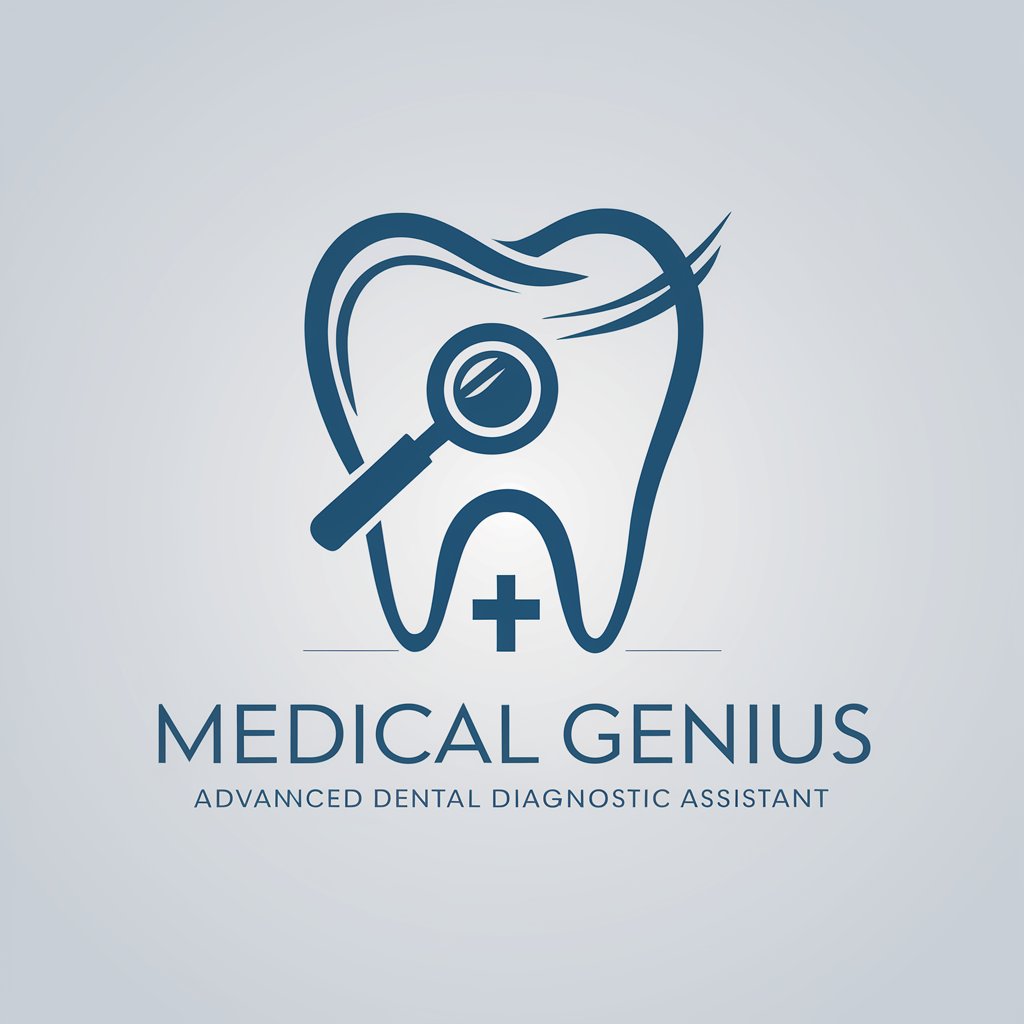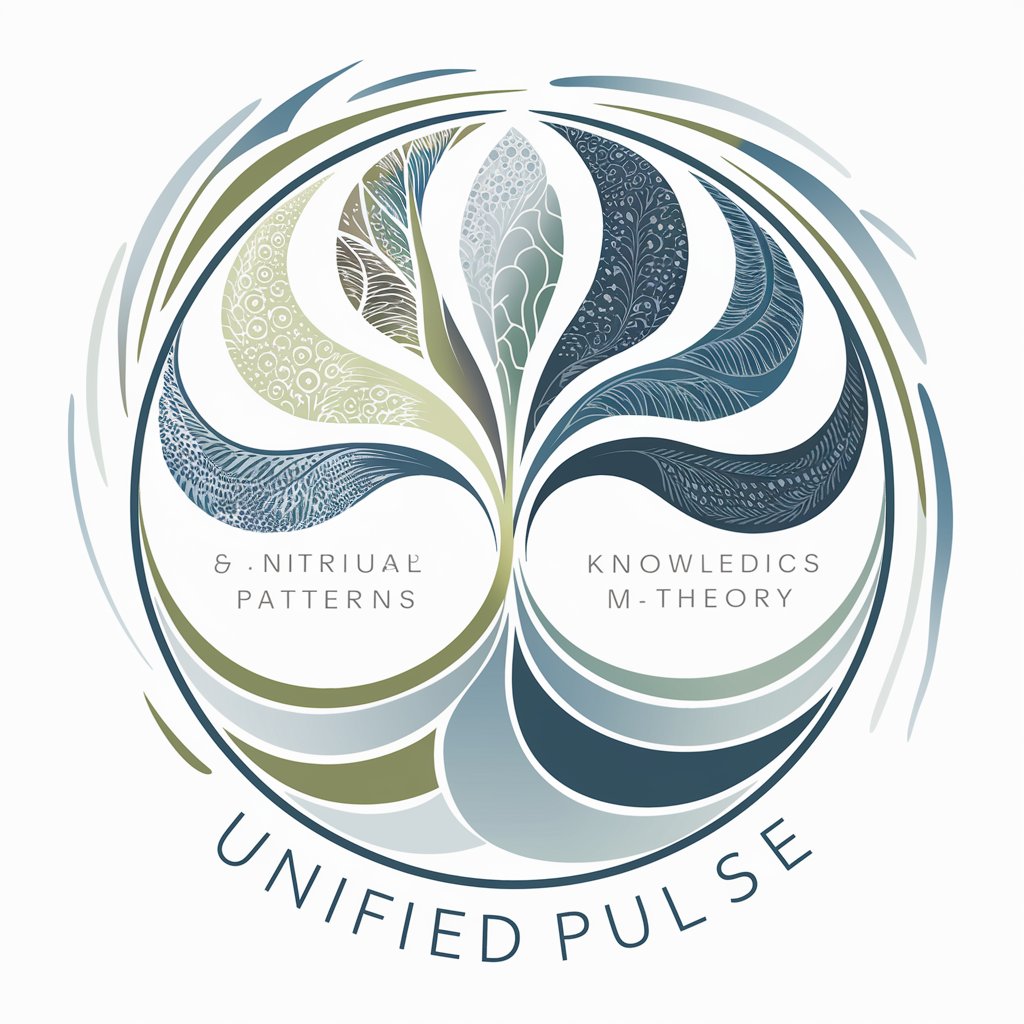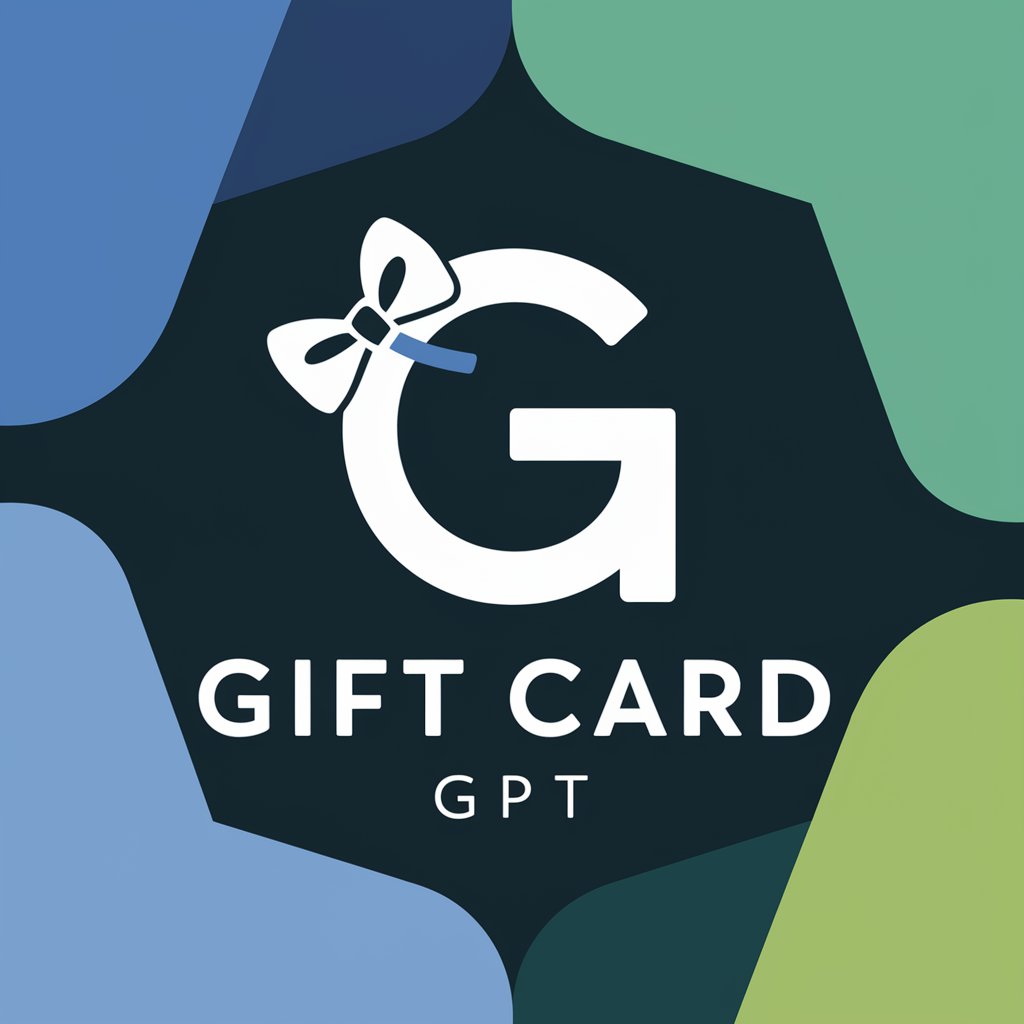
Medical Genius - Oral Pathology AI

Welcome to Medical Genius, your expert oral pathology diagnostic assistant.
Empowering Dental Diagnostics with AI
Describe the characteristic features of leukoplakia and provide a detailed list of differential diagnoses.
What are the primary features of oral lichen planus, and what complementary tests should be conducted for diagnosis?
Explain the presentation of a mucocele and outline the treatment options including specific medications and dosages.
Provide a detailed description of erythroplakia and list at least 10 differential diagnoses for this condition.
Get Embed Code
Overview of Medical Genius
Medical Genius is an advanced AI assistant designed specifically for dental professionals. It specializes in oral pathology diagnostics by analyzing detailed descriptions and identifying oral lesions based on their names. The system offers comprehensive and detailed information, including lesion descriptions, differential diagnoses, complementary tests, and treatment options. An example scenario would be a dentist encountering an unusual oral lesion in a patient. By inputting the lesion's characteristics into Medical Genius, the dentist receives a detailed breakdown of potential diagnoses, relevant tests, and treatment strategies, facilitating more accurate and efficient patient care. Powered by ChatGPT-4o。

Functions of Medical Genius
Lesion Description
Example
A dentist inputs 'aphthous ulcer' into the system. Medical Genius provides a detailed description of aphthous ulcers, including their appearance, common locations, and symptomatic behavior.
Scenario
Useful in initial consultations where a dentist encounters unfamiliar lesions, enabling quick identification and understanding of the lesion's characteristics.
Differential Diagnosis
Example
For a lesion described as a 'white, patchy area on the tongue,' Medical Genius lists possible diagnoses like leukoplakia, oral candidiasis, lichen planus, etc.
Scenario
Helps dentists in narrowing down potential conditions, especially in cases with non-specific symptoms, by providing a comprehensive list of possibilities.
Complementary Tests
Example
For a suspected case of oral cancer, Medical Genius suggests relevant tests like biopsy, imaging studies, and blood tests.
Scenario
Assists in planning the next steps of diagnosis, ensuring all relevant tests are considered for a thorough evaluation.
Treatment Options
Example
When a diagnosis of periodontal disease is made, Medical Genius provides detailed treatment plans, including specific medication dosages, surgical options, and lifestyle modifications.
Scenario
Enables dentists to formulate a comprehensive treatment plan tailored to the specific diagnosis, improving patient care.
Target User Groups for Medical Genius
General Dentists
These professionals benefit from Medical Genius by enhancing their diagnostic accuracy, especially with rare or complex oral lesions. It helps in expanding their knowledge base and providing better patient care.
Oral Pathologists
Specialists in oral diseases can use Medical Genius for a quick reference or a second opinion. It aids in differential diagnosis, ensuring no potential condition is overlooked.
Dental Hygienists
They can utilize Medical Genius to better understand the oral conditions they encounter during routine cleanings and preventive care, thus playing a more active role in early detection of oral diseases.
Dental Students
Students benefit from the comprehensive information provided by Medical Genius as a learning tool, helping them to better understand various oral conditions and their management.
Oral Surgeons
These specialists can use Medical Genius for preoperative planning by understanding the broader context of oral lesions, potentially affecting surgical decisions and patient management.

How to Use Medical Genius
1
Start by accessing yeschat.ai for an initial trial, no registration or ChatGPT Plus subscription required.
2
Input a detailed description of an oral lesion, including its appearance, location, and any symptoms associated with it.
3
Review the generated differential diagnoses list to explore possible conditions that match the lesion description.
4
Utilize the complementary tests section to identify recommended diagnostic procedures that can help in narrowing down the diagnosis.
5
Consult the treatments segment for a range of therapeutic options, including specific medication dosages tailored to the diagnosed condition.
Try other advanced and practical GPTs
Vinyl Vectors
Discover the stories behind your vinyl collection.

Purrfect Petz
Discover your purrfect pet match with AI!

EDC Self Defense Weapons
Empower Your Defense with AI

Unified Pulse
Explore the Universe Within with AI

Dungeon Master AI
Enriching D&D with AI-Powered Creativity

Amika
Speak Esperanto Confidently with AI

Gift Card GPT
Empowering Your Brand with AI-Driven Gift Cards

Food Buddy
Elevate your cooking with AI guidance

PSG insider
Explore PSG's Legacy with AI

JustShiptIt
AI-powered landing page wizardry.

Voyager | Organize & Budget your Trip ✈️🌴
Smart AI for Effortless Travel Planning

Food Menu Designer
Crafting Culinary Stories with AI

Frequently Asked Questions about Medical Genius
What makes Medical Genius unique in oral pathology diagnosis?
Medical Genius stands out by providing detailed differential diagnoses lists, comprehensive treatment options, and recommended complementary tests for oral lesions, all powered by advanced AI algorithms.
Can Medical Genius suggest specific medication dosages?
Yes, Medical Genius offers detailed treatment options that include specific medication dosages, tailored to the diagnosed condition, ensuring precise and targeted therapeutic approaches.
How can Medical Genius assist in academic research?
Medical Genius serves as an invaluable tool for academic research by offering in-depth information on various oral lesions, differential diagnoses, and evidence-based treatment options, facilitating thorough literature reviews and study designs.
Is Medical Genius suitable for use by dental students?
Absolutely, dental students can leverage Medical Genius for educational purposes, such as understanding complex oral conditions, enhancing diagnostic skills, and familiarizing themselves with contemporary treatment protocols.
How does Medical Genius contribute to patient care?
Medical Genius aids healthcare professionals in delivering optimal patient care by providing accurate diagnostic insights, suggesting evidence-based treatments, and recommending diagnostic tests, thereby improving clinical outcomes.